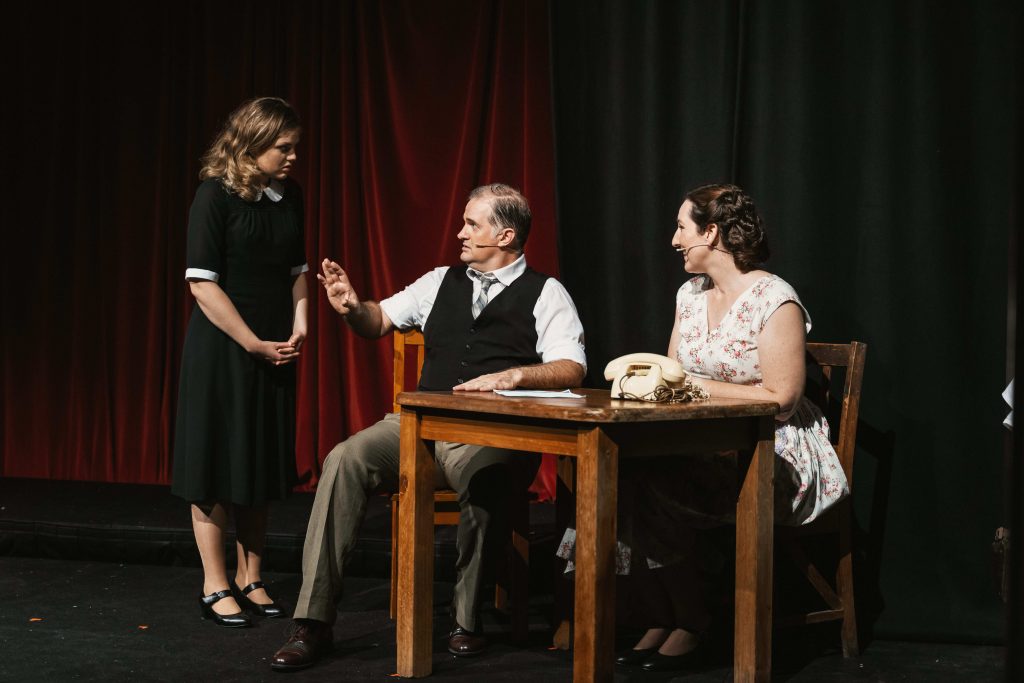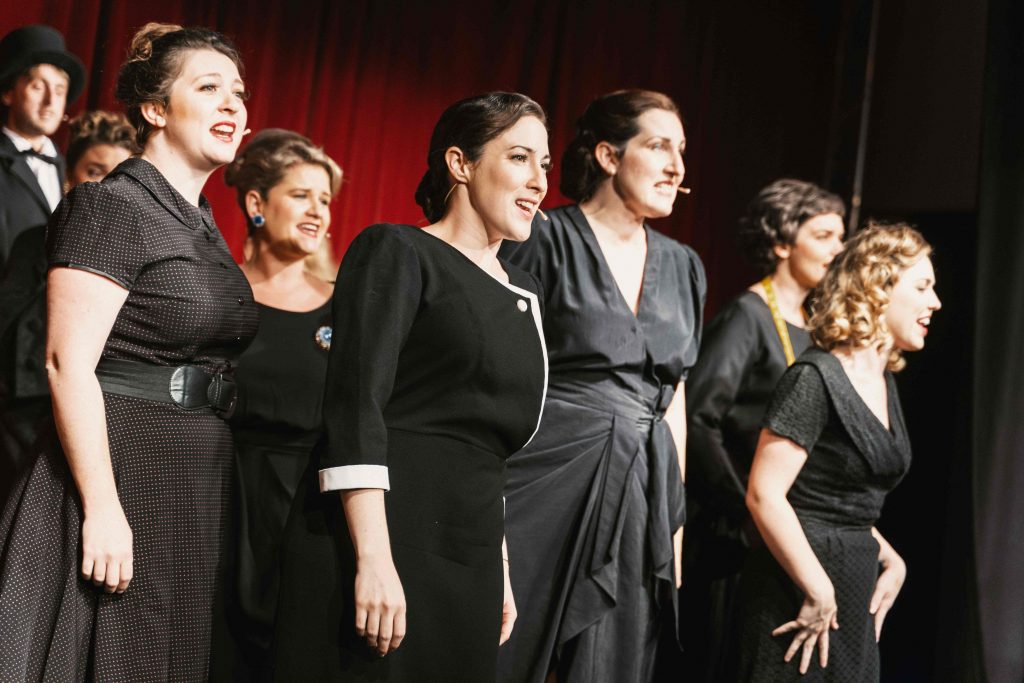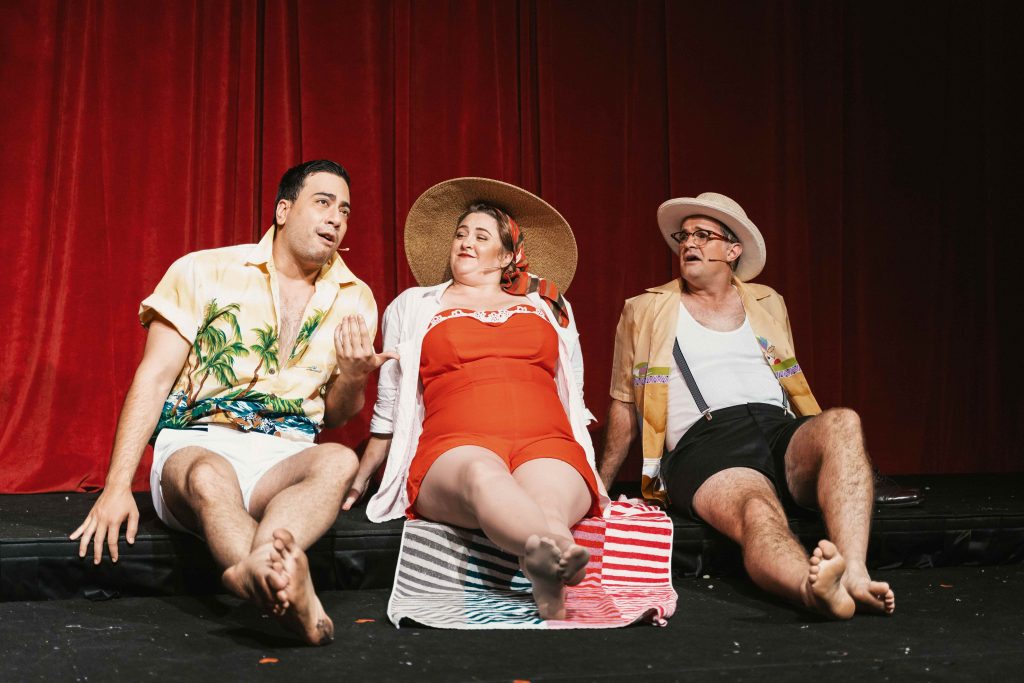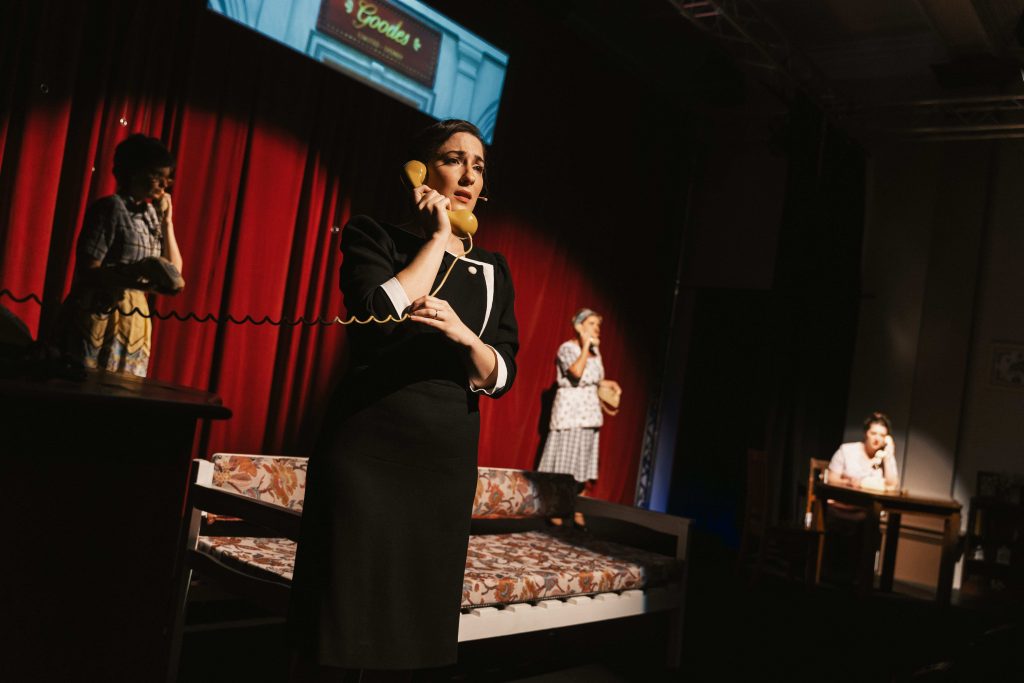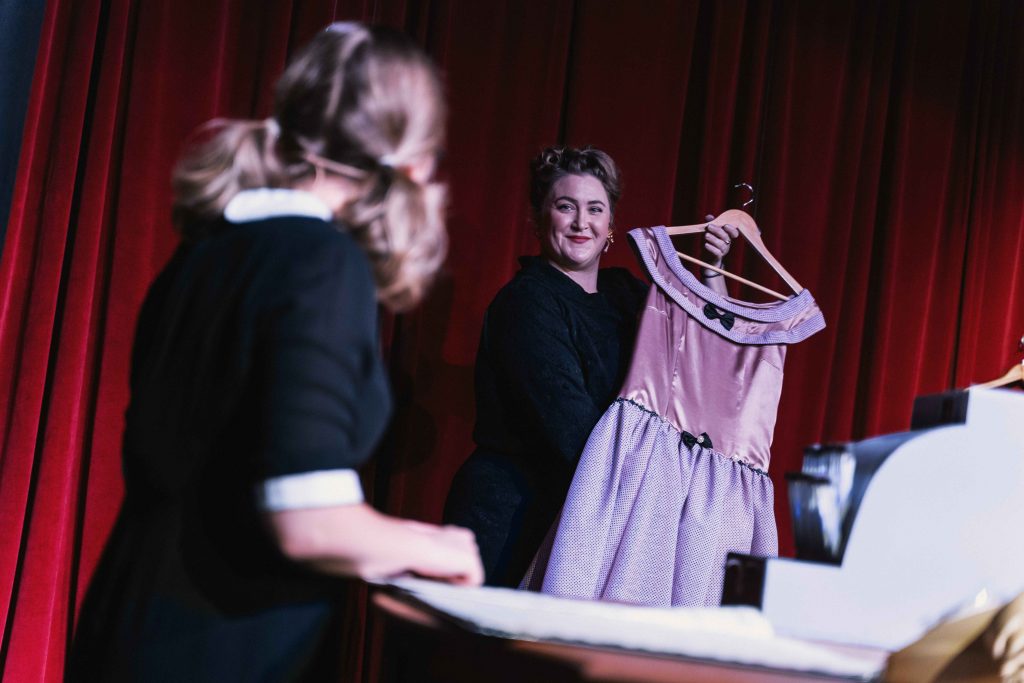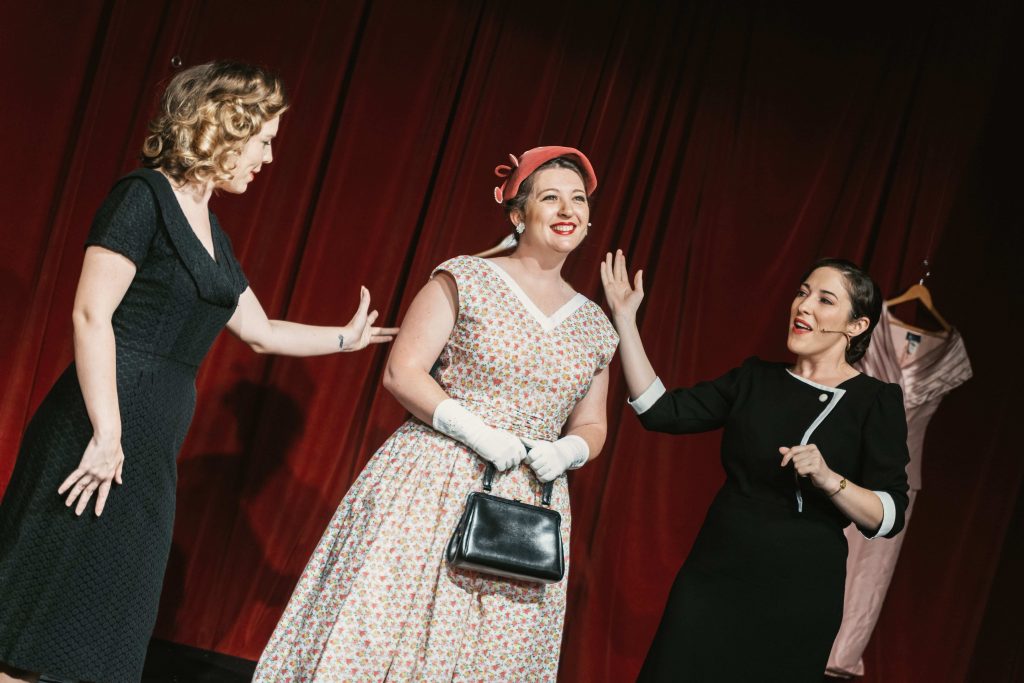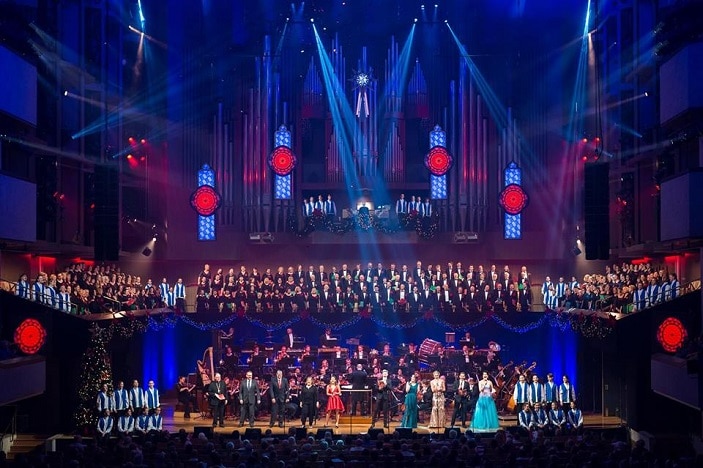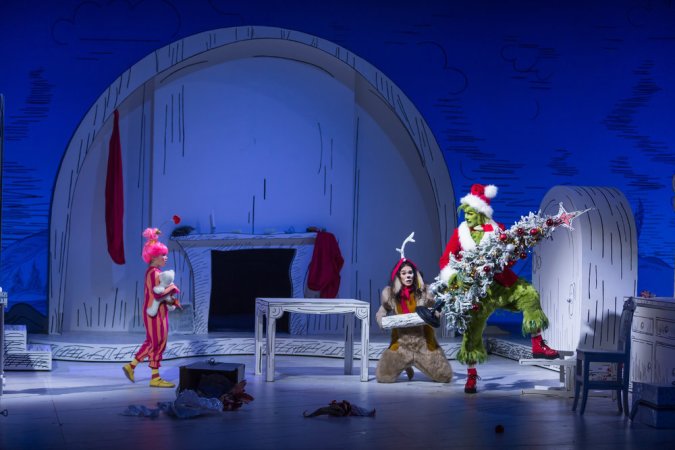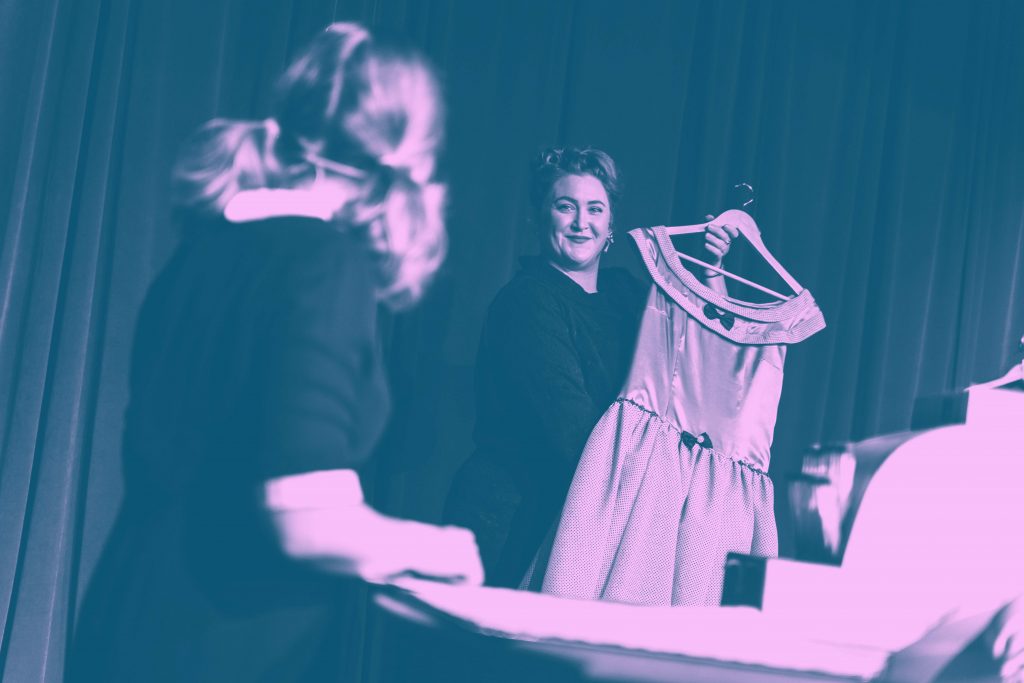
‘Ladies in Black’ // Ipswich Musical Theatre Company
‘Ladies in Black’ was bonza.
For their first production of 2019, the Ipswich Musical Theatre Company (IMTC) presented a vivid picture of typical 1950s Australiana. Despite the historical significance of the Old Ipswich Courthouse, the opening night of the Queensland Amateur Premiere, ‘Ladies in Black’ was full of kindness and warmth from the moment you entered the theatre. With the box office manned by the director herself, it was clear that Tammy Sarah Linde was passionate about this project, as she greeted every member of the audience with her unbridled excitement.
Premiering in 2015 by the Queensland Theatre Company, ‘Ladies in Black’ is based on the book ‘The Women in Black’ written by Madeleine St. John, which follows the stories of several women employed to work at a Sydney-based department store during the Christmas of 1957. The work is unashamedly Australian, with ‘okka’ accents aplenty, and Australian slang up the wazoo. So for a work so focused on Australian issues in the 1950s, the New Zealand creative team of Carolyn Burns (Book) and Tim Finn (Music and Lyrics) was a strange choice, but one that ultimately created a successful snapshot of the difficulties faced by women in the 1950s, albeit with an unbalanced, disjointed musical score, predictable lyrics and a clunky, unemotional book.
The set was simple, yet effective – part of Linde’s conscious directorial style, as was also seen in Big Fish (Phoenix Ensemble) and Sunday in the Park with George (IMTC). By allowing the actors to shine, rather than being hidden by overbearing set pieces, she allowed the story to be at the forefront. The magic was that every set piece and prop just seemed to fit – the sense of cohesion was part of the charm of this intimate piece of theatre, and the size of the theatre was the perfect incubator for this new Australian work. Unfortunately, the lack of raked seating meant that much of the action that takes place on the floor was missed, but overall this didn’t detract from the overall experience.
Speaking with the director, it appears IMTC is continuing to invest in technology to improve the shows they present in their ‘home base’. However, even with these additional fixtures, Daniel Hallen’s lighting design was relatively basic, and changes between cues were regularly slow or complete wrong, lighting up incorrect parts of the stage. For a modern show such as ‘Ladies in Black’ with manic songs such as ‘Pandemonium’, it might be worth hiring extra lights to create more effects.
Darren Taylor’s Sound Engineering was well handled considering the logistical limitations of having an orchestra pit in a separate room. From my position, the balance between singers and musicians was always a little too band heavy but fixed itself in the group numbers where the singers had strength in numbers. Huge kudos for not a single ounce of feedback – a seldom find in any community theatre production.
Leading the cast as protagonist Lisa, the recent high school graduate destined to become a poet, Bailee Scott commanded the stage from the offset. Scott’s mature portrayal of a terrified teenager to a more confident, determined artist gave the show the sense of heart that it so desperately (no thanks to the one-dimensional book) lacks. With beautiful vocals in both soft and full-voice passages and an eternal sense of optimism, Scott’s youthful exuberance gave enough energy to push through the slow-paced first act.
Conversely, it was the seasoned professionalism and class demonstrated by Danika Saal, Chris Kellett and Phillip Fitzjohn (as Magda, Mr. Miles/Stefan, and Rudi respectively) that made every single moment of their scenes pleasurable. With continuous suave, polished vocals and impeccable comic timing, the opening of Act 2 was a highlight, with the beautifully crafted vintage 1950s swimming costumes adding to the authenticity. Wardrobe Manager, Mary Slattery should be particularly proud of the flattering period costumes provided for the entire cast. Of particular note was Saal’s beautiful journey from curt ‘continental’ to adoptive mother-hen to Lisa, who presented a well-grounded, confident Magda with gravitas, proud of her Hungarian heritage.
The musical direction by Matthew Semple was concise and effective. Successfully commanding his 7 piece orchestra, the sound was rich and lush with subtly effective keyboard programming adding to the texture and never distracting. Conducting from another room is never easy, but the actors and band were a cohesive performing machine.
Heading up the Cocktail Frocks department were Harriet Jackson (Fay) and Lauren Roche (Patty), who played best friends both unlucky in love. Jackson’s lack of luck in her love life was a wistful reminiscence for many in the audience who had been in her shoes. As an audience, we found ourselves willing her on to find the ‘one’, culminating in the shocking decision to marry a ‘continental’, which resulted in one of the funniest numbers of the show – “I Just Kissed a Continental”. Tasked with some of the more obscure and tricky songs in the show, both Jackson and Roche stood and delivered beautiful vocals with only minor slips in pitch detracting from the jarring melodies in Finn’s writing.
Roche’s portrayal of a typical 1950s housewife was honest and endearing. The main arc of her personal story revolves around her inability to bear a child, testing the relationship between herself and her husband, Frank. Unfortunately, as the chemistry between the two actors was a little stilted, the whole storyline lost its focus and power, and the subsequent reunion felt a little flat. Hopefully, this was just opening night jitters.
The decision to not bring a choreographer on board was understandable considering the musical itself had very few moments of dance. However, the moments that were required felt a little contrived and could have benefitted from a little more expertise. The climax of the Hungarian New Year’s Eve dance party felt a little stunted through repetition, and a little more creative choreography could have been used to further highlight the stark contrast between Australian and ‘Refo’-Hungarian cultures.
Despite, in this reviewer’s opinion, an extensive need for rewrites in the source material, IMTC’s ‘Ladies in Black’ was an evening of elegant simplicity. Its emphasis on the cohesion between sets, costumes, and design was extremely well executed and it will be interesting to see what other magic can be created in the Old Courthouse in 2020.
‘Ladies in Black’ performs until Sunday, 5 May 2019 at The Old Courthouse, Ipswich. Their season may be sold out, but for more information about IMTC and their upcoming productions visit www.ipswichmusicaltheatrecompany.com.au
Photo Credit: Kenn Santos




